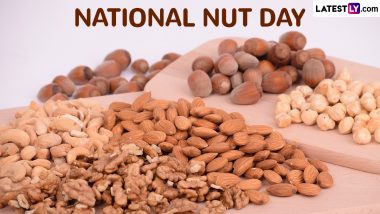The term, ‘gut health’ is something that has gained a lot of traction over the past decade. Let’s try to understand what gut health is and how it significantly contributes to our overall health. Gut Health is nothing but the balance of microorganism that tends to live in our digestive tract. These microorganisms are known as ‘gut micro biome’ and research says that each person has about 200 different species of bacteria, viruses, and fungi in their digestive tract. “Some are harmful and some are extremely beneficial and required for the sustenance of a healthy body!” says Shikha Agarwal.
Gastric problems, acid reflux, bloating, heartburn, skin irritation, fatigue, unstable weight development, and constipation are the few symptoms that indicate reduced or negative gut health. Getting these issues once in a while is not unusual but, if you suffer from these every time you eat food then it is evident that you have developed a chronic acid reflux condition in your intestines. Shikha states, “Believe it or not, 80% of your immune system lies in your gut.” The body’s serotonin level majorly is maintained by your gut and if that is not healthy, you will have a weak immune system and, likely, your body will not produce hormones leading you to fall severely ill. “Therefore, your gut is the foundation of everything, it aids in digestion, helps absorb nutrients, and helps the body to get rid of metabolic waste and toxins”, says Shikha.
Poor nutrition, stress, lack of sleep, and excessive usage of antibiotics and antacids are some of the factors that affect anyone’s gut health. It is proven that one can improve their gut health if one makes consistent and positive lifestyle and diet changes. These are elaborated below –
- Lower your stress levels and ensure good sleep. High levels of stress affect the whole body including the gut, thus it is recommended to practice walking, meditating, practicing yoga, and spending time with family, and friends or doing activities that make you happy. “Even the fact of not getting enough sleep can have a serious impact on your gut health and that is why you should prioritize 7 – 8 hours of sleep”, says Shikha Agarwal.
- Take pro-biotic and pre-biotic in the form of Fermented and Fibre Rich food. Your gut requires probiotics to increase the beneficial bacteria. Shikha advises, “Some people choose to take supplements but I would recommend eating fermented and fiber-rich foods as it is a natural source for it.” For example, fermented vegetables, kimchi, kombucha, yogurt, and sauerkraut are prized for their gut–boosting abilities.
On the other hand, Fibre based foods are the natural source of probiotics or non-digestible carbohydrates. Foods like legumes (lentils, black beans, kidney beans, soybeans, and chickpeas), whole grains (whole wheat bread and pasta, oatmeal, and bran flake cereals), fruits (berries, apples, bananas, oranges, and pears), vegetables (carrots, garlic, onions, beet, spinach, broccoli, green peas, and collard greens), and nuts (almonds, peanuts, and pecans) can encourage the beneficial bacteria in the gut to multiply. This also helps in alleviating constipation, however, you have to intake fiber in a limited way too, or it will cause bloating.
- Eat your meals in small amounts and slowly to beat the bloat. It is highly advised to not eat large volumes of food at a go because it will create bloating in two ways. First, it will stretch your stomach providing space for gas and solids in your gut. Second, if the food contains non-digestible carbohydrates and when it accumulates in your colon the probability of gastric problems will increase. High amounts of salt and sweet intake, as well as fatty foods, should be avoided to control bloating
- Hydrate yourself and increase stomach acid through alkaline and watery foods. Shikha recommends drinking plenty of water and other liquids like naturally sweetened fruits, clear soups, and vegetable juices so that the fiber intake in the body works better. It also helps to avoid infrequent bowels and hard stools. “Increasing stomach acid is a proven way to manage heartburn and there are plenty of foods present to assist us in that”, says Shikha. She suggests alkaline foods like nuts, cauliflower, melons, and fennel to regulate the acid or pH levels in the body.













 Quickly
Quickly





















